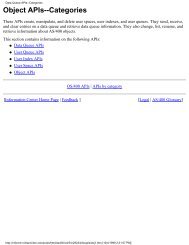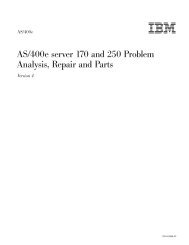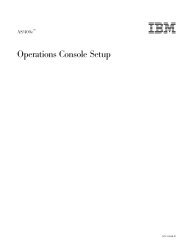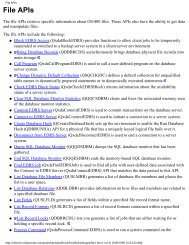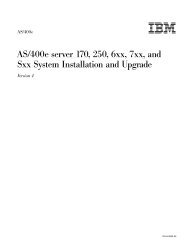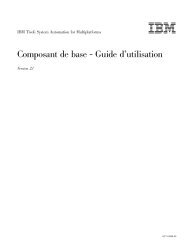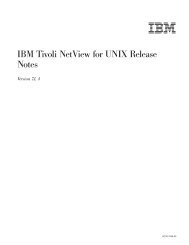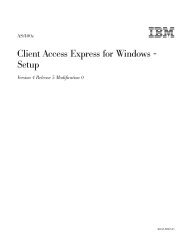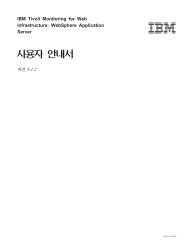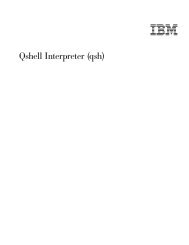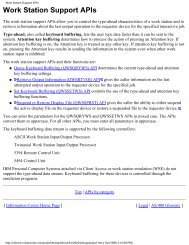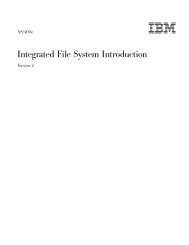Create successful ePaper yourself
Turn your PDF publications into a flip-book with our unique Google optimized e-Paper software.
COPIES(2)<br />
From Override 2<br />
LPI(4) From Override 4<br />
Because no specific override is found for PRT2 in program B, override 4 is applied.<br />
In program A, override 2 specifies PRT2 and is applied.<br />
When program X opens the file PRT3, the opened file has the following attributes:<br />
COPIES(1)<br />
From Override 1<br />
LPI(8) From Override 5<br />
In program B, override 5 specifies PRT3 and is applied. Because no specific<br />
override is found for PRT3 in program A, override 1 is applied.<br />
When program X opens the file PRT4, the opened file has the following attributes:<br />
COPIES(2)<br />
From Override 3<br />
LPI(8) From Override 6<br />
In program B, override 6 specifies PRT4 and is applied. In program A, override 3<br />
specifies PRT4 and is applied.<br />
Applying overrides when compiling a program<br />
Overrides may be applied at the time a program is being compiled for either of<br />
two purposes:<br />
v To select the source file<br />
v To provide external data definitions for the compiler to use in defining the<br />
record formats to be used on I/O operations<br />
Overrides to the source file are handled just like any other override. They may<br />
select another file, another member of a database file, another label for diskette or<br />
tape, or change other file attributes.<br />
You can also apply overrides to files that are used within the program being<br />
compiled, if they are being used as externally described files in the program. These<br />
files are not opened at compile time, and thus the overrides are not applied in the<br />
normal manner. These overrides are used at compile time only to determine the<br />
file name and library that will be used to define the record formats and fields for<br />
the program to use I/O operations. Any other file attributes specified on the<br />
override are ignored at compile time. It is necessary that these file overrides be<br />
active at compile time only if the file name specified in the source for the program<br />
is not the file name that contains the record formats that the application needs.<br />
The file name that is opened when the compiled program is run is determined by<br />
the file name that the program source refers to, changed by whatever overrides are<br />
in effect at the time the program runs. The file name used at compile time is not<br />
kept. The record formats in the file that is actually opened must be compatible<br />
with those that were used when the program was compiled. Obviously, the easiest<br />
way to assure that records are compatible is to have the same overrides active at<br />
run time that were active at compile time. If your program uses externally<br />
Chapter 3. Using overrides 53



